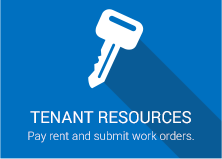by Jason Van Steenwyk
Real estate is famous for its phenomenal success stories. Unfortunately, real estate is also famous for its long heritage of charlatans, snake oil salesmen, scammers, fraudsters and criminals. Much has been written about the scams that target neophyte property investors and lure them into expensive “mentorship programs,” “No money down!” deals and the like.
This article will outline the scams commonly pulled on landlords and investors and discuss how you can prevent falling for one – and losing thousands of your hard-earned dollars in the process.
Rental Scams
The “Fake Agent” Scam
In this scam, someone rents the property from you and then turns around and pretends to be the landlord himself. He’ll post an ad, show the property to several people, collect first and last months’ rent, deposit fees, credit check and application fees and anything else he can con out of people responding to the ad.
A scammer can pull this this dozens of times on the same unit – and when it’s time for the “renters” to move in, the fake landlord is long gone – leaving you with a line of unhappy people, headaches and potentially legal fees.
The antidote: Consider doing one or more of the following:
- Check out your tenants thoroughly. Verify their identities and do a background check. Then do a Google and Craigslist search on your address looking for listings you did not create. Go through listings in your neighborhood that include photos of your property. Tip: Set up a Google Alert with your property address on it. You’ll get an email when Google’s Internet-crawling bots detect any online activity with the text of your address. If you know the renter’s cell phone number, put a Google Alert on that, too.
- If you don’t live near your rental properties, hire a property manager to keep an eye on things for you. Benefits like these that property managers provide are worth their fees, and you also gain from their experience and access to background check resources that may not be cost-effective for an individual landlord.
- Change the locks after each tenant.
- Check references, and then double-check them. Did the tenant give you an employer’s phone number as a reference? Check out the employer and make sure it’s a bona fide business.
Investment Scams
Sure, it helps to have a mentor, and few hugely-successful real estate investors will tell you they haven’t learned things along the way from other people. But how can you tell the real professionals who genuinely enjoy mentoring and teaching from the scammers looking to exploit you to make a quick buck? Here are some common tactics employed by investment scammers that you should be wary of.
Beware of “Systems” or Secrets for Sale
Real estate is a fairly simple industry, so there are few real “systems” that actually work other than having a disciplined process for buying properties at a discount from their intrinsic value so you can profitably rent them or fix and flip them out. There are also very few real estate “secrets” that aren’t now common knowledge in the industry.
Creating a Sense of Scarcity
There’s always time. Don’t fall for the “act now – I only have slots for five team members in your area” ploy. That’s just a ruse to get you to skip your due diligence and sign a check.
Note that when you’re buying a property time is often of the essence. Many times the first to commit with earnest money gets the property and the race is on. However, this is not the case when it comes to investment programs, mentorships and the like.
Selling the Dream Rather Than Sharing Knowledge
Charlatans aren’t about selling knowledge. They may have a bit of it, but they will only share just enough knowledge to entice you to sign up for a more expensive program. Open their books and literature and you’ll find it’s awfully short on content, but awfully long on photos of the author posing in front of mansions, sports cars and jets. He’s selling you the dream, not the actual knowledge that will help you attain the dream.
Real estate has made many people very wealthy – but it has never been a get rich quick scheme. Get too greedy, you’ll leverage too much, and you’ll become bankrupt when the market turns against you.
“No Money Down” Deals
Real “no money down” deals are few and far between in the investment world. Sure, veterans can qualify for a zero down payment mortgage through the VA, but those can’t be used for purely investment properties (with the exception of duplexes, triplexes and quads). You have to commit to living in the property for at least a year, or have your spouse live there if you’re deployed or otherwise away, if you want to use a VA loan. You also normally have to occupy within 60 days of closing.
Don’t have anything to do with a real estate “guru” who suggests you use your VA eligibility for a property you don’t plan to live in, or to help obtain a property for another person. That’s fraud.
Unrealistic Guarantees
Real estate involves risk. If you want risk-free investing, stick to CDs, money markets and fixed annuities. Even treasury bonds, which are backed by the full faith and credit of the United States government, have big price swings and are therefore subject to risk.
Avoid anyone selling you a system that includes terms and phrases like these:
- “Risk-free”
- “Secrets”
- “Magic”
- “Judgment-proof”
- “Bullet-proof”
- “Get rich quick” (unless they’re warning you that you won’t)
- “Nevada corporations” (unless you’re doing business in Nevada)
- “Bearer bonds”
- “Advance fees” on mortgage loans
Generally, the old adage holds true: If something is too good to be true, it probably is. Be especially wary of deals that are too far below market price to be realistic, or with those who are too eager to sell at cheap prices. Not that great deals never happen – just be sure about what you’re getting into before you commit money.











